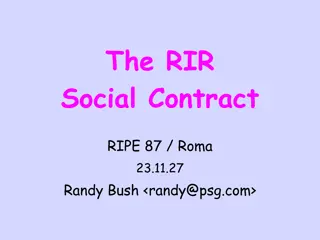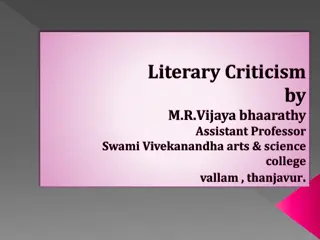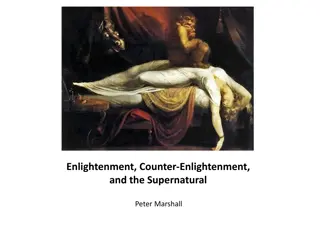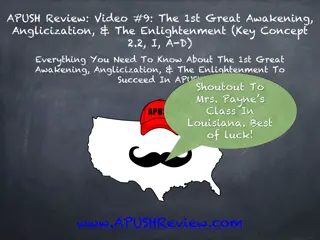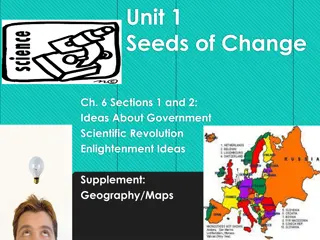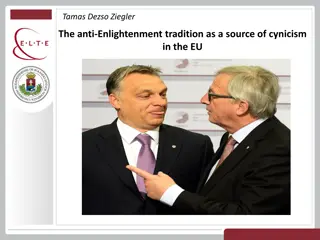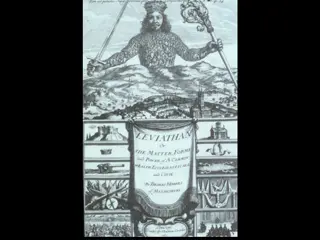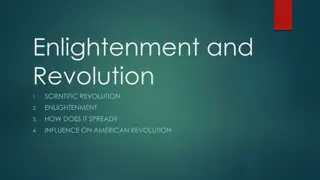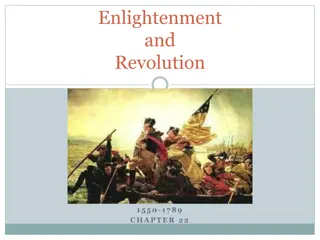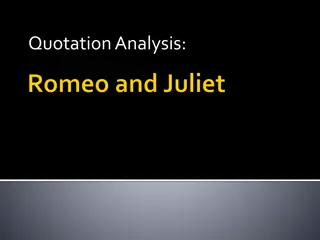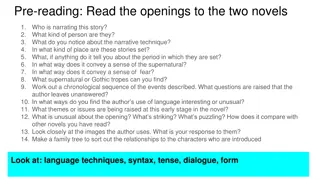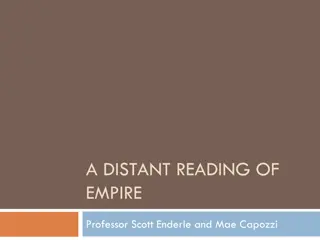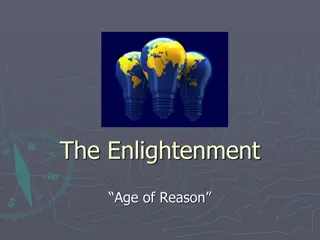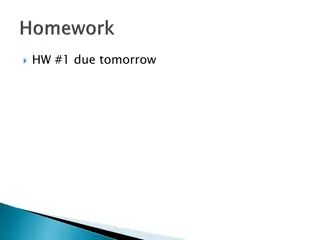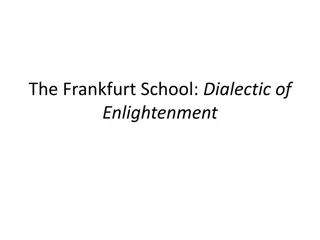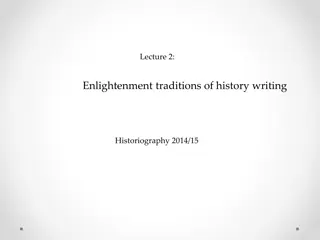Literary Culture After 1688: The Age of Enlightenment and Emerging Novels
A period of intellectual progress post-1688 marked by emphasis on reason and rationality, the Age of Enlightenment saw a rise in literature with a reading public. The success of the Glorious Revolution bonded society by securing individual rights. The Industrial Revolution led to the ascent of the middle class, fostering a demand for realistic novels. Notable authors like Defoe, Swift, Richardson, Fielding, and Sterne contributed to this literary flourishing.
Download Presentation

Please find below an Image/Link to download the presentation.
The content on the website is provided AS IS for your information and personal use only. It may not be sold, licensed, or shared on other websites without obtaining consent from the author.If you encounter any issues during the download, it is possible that the publisher has removed the file from their server.
You are allowed to download the files provided on this website for personal or commercial use, subject to the condition that they are used lawfully. All files are the property of their respective owners.
The content on the website is provided AS IS for your information and personal use only. It may not be sold, licensed, or shared on other websites without obtaining consent from the author.
E N D
Presentation Transcript
After the disruption and change of 17 confidence mark the literary culture after 1688. After the disruption and change of 17th confidence mark the literary culture after 1688. thcentury, a desire for rational agreement, and increasing century, a desire for rational agreement, and increasing There were improvements in agriculture and industry, by trade with England s overseas empire. There were improvements in agriculture and industry, by trade with England s overseas empire. There was more leisure at home as Britannia dominated the far South Pacific, and literature gained a reading public. There was more leisure at home as Britannia dominated the far South Pacific, and literature gained a reading public. It was a period of intellectual progress with greater emphasis upon reason and rationality, and is thus also known by the term, The Age of Enlightenment . It was a period of intellectual progress with greater emphasis upon reason and rationality, and is thus also known by the term, The Age of Enlightenment . The success of the Glorious Revolution also ensured that the society was now bonded by an enlightened self the individual rights. The success of the Glorious Revolution also ensured that the society was now bonded by an enlightened self interest and the dual necessities of securing individual liberty and securing the individual rights. interest and the dual necessities of securing individual liberty and securing Sir Isaac Newton (1642 1704) and Anthony Ashley Cooper, his pupil provided an intellectual basis for the theories of politics Sir Isaac Newton (1642- -1727) came up with his 1704) and Anthony Ashley Cooper, his pupil provided an intellectual basis for the theories of politics and religion 1727) came up with his Principia and Principia and Opticks Opticks, , also John Locke (1632 also John Locke (1632- - and religion
The industrial revolution appears to have paved the way for the rise of the middle class. Much of the 18thcentury literature with its polite or aristocratic tone happens to be created by authors who belonged to the middle class. There was a demand for reading literature that would present characters in real life events. Moreover, with the increase in literacy the demand for reading material also increased rapidly. There was a flourishing of newspapers and periodicals which carried literary essays. In Samuel Johnson s Dictionary the most cited prose writer is Samuel Richardson, who came up with the epistolary novel Pamela that developed from his idea of creating specimens of letters for different social situations. Richard Steele and Joseph Addison worked together to produce The Tatler, a collection of essays. The rise of individualism also played a significant role in the emergence of the novels
Daniel Defoe (1660-1731): Robinson Crusoe (1719), Captain Singleton (1720), Colonel Jack (1722), Moll Flanders (1722), Roxana: The Fortunate Mistress (1724) Jonathan Swift (1661-1745): Samuel Richardson (1689-1761): Henry Fielding (1707-1754): Tobias Smollet (1721-1771): Laurence Sterne (1730-1768):



